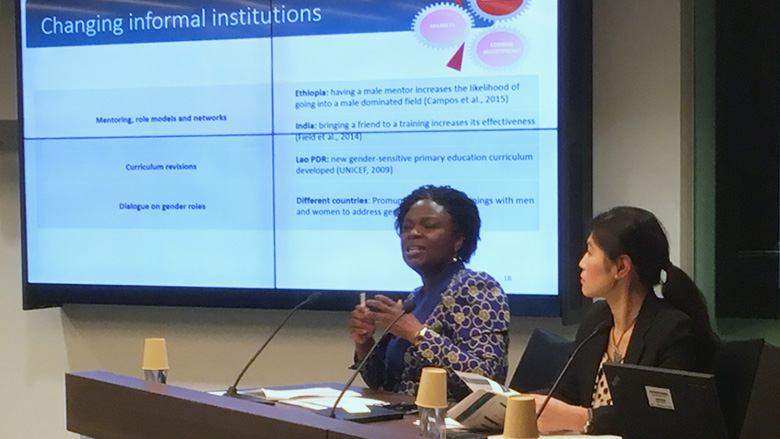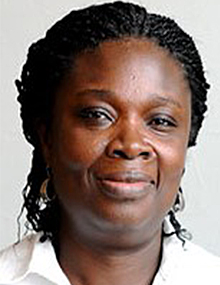
The lives of women around the world have improved dramatically, at a pace and scope difficult to imagine even 25 years ago. Women have made unprecedented gains in education, health, and access to jobs and livelihoods. More countries than ever guarantee equal rights in property, marriage, and other domains. Gender gaps in primary schooling have closed in many countries, while in a third of all countries girls now outnumber boys in secondary school. Despite the progress, gaps remain in many areas. Among these is the economic participation of women relative to men. In many economies, including in East Asia and Pacific, women are generally less likely to be in the labor force, and even when they are, tend to have lower quality jobs and earn less. Yet promoting greater equality in economic opportunities between men and women can enhance productivity and growth prospects while improving development outcomes for the next generation.
The Seminar highlighted the challenges that still limit women’s economic opportunities in countries across the region and policy approaches that could lead to faster progress in reducing these barriers to gender equality.
Program
Opening Remarks
Yasusuke Tsukagoshi, Special Representative, Japan, World Bank
Presentation
Victoria Kwakwa, Vice President, East Asia and Pacific, World Bank
Presentation Material: Promoting Women’s Economic Opportunities: Challenges and Policy Directions for Developing East Asia and Pacific (PDF)
Comment
Satomi Okagaki, Senior Deputy Director, Global Issues Cooperation Division, International Cooperation Bureau, Ministry of Foreign Affairs of Japan
Speaker
Victoria Kwakwa assumed the role Vice President for the East Asia and Pacific on April 15, 2016. She oversees a portfolio of more than $32 billion in loans, grants, credits, and trust funds across 23 countries. Ms. Kwakwa leads the World Bank’s strategy in East Asia Pacific which focuses on five priority areas: inclusion and empowerment; jobs and private sector-led growth, governance and institutions, infrastructure and urbanization, climate change and disaster risk management. The Region also focuses on the cross-cutting themes of gender, fragility and conflict and poverty analytics. Ms. Kwakwa was previously the World Bank’s Country Director for Vietnam, overseeing a multibillion-dollar lending portfolio and an innovative knowledge program, including the recently published Vietnam 2035 report. This report, prepared jointly with the Government of Vietnam, presents options for Vietnam to achieve its ambitious goal of becoming an upper-middle-income country in a generation. Ms. Kwakwa joined the Bank as a Young Professional in 1989 and worked on the 2000-2001 World Development Report on poverty. She earned her doctorate and master’s degree in economics from Queen’s University in Canada. |
* The session will be recorded for later viewing.
